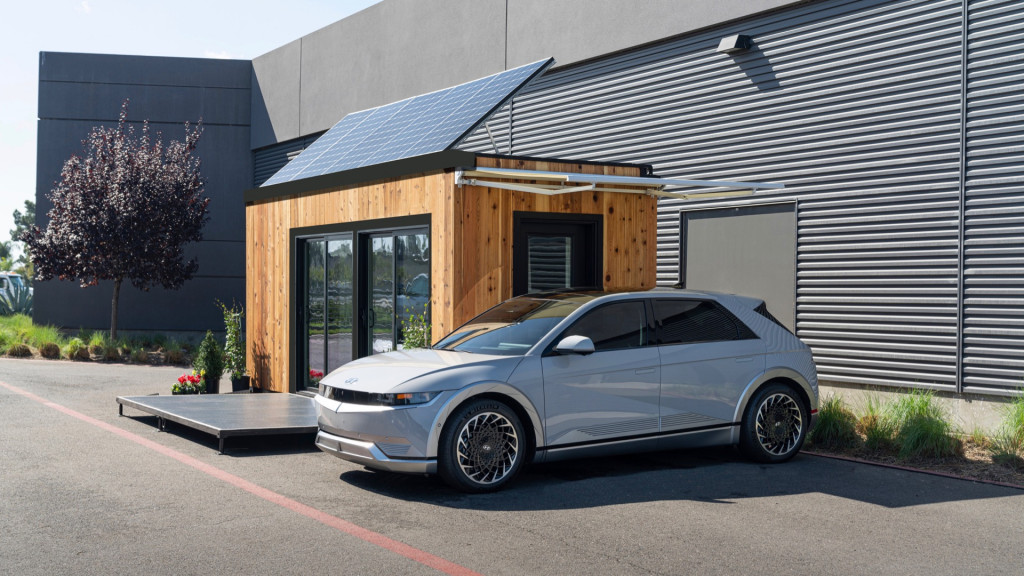Spikes in electricity rates can raise the cost of charging an EV at home, but California has a solution.
As explained in a recent post on The Equation, from the Union of Concerned Scientists (UCS), California is considering adding a fixed charge on electricity bills from its largest utilities in exchange for a reduction in the per-unit price of electricity use. That would keep utilities’ revenue consistent while maintaining lower overall home-charging costs for EV owners.
A proposal from the California Public Utilities Commission (CPUC), the state’s utility regulator, would establish a monthly flat fee of $24.15 for customers of California’s three major investor-owned utilities—Pacific Gas & Electric (PG&E), Southern California Edison (SCE), and San Diego Gas & Electric (SDG&E).
2024 Chevrolet Silverado EV with GM Ultium Home energy system
The proposal also calls for income-based tiers for the monthly charge. Customers participating in the California Alternate Rates for Energy (CARE) rate-reduction program would pay approximately $6.00 per month, while those enrolled in the Family Electric Rate Assistance program, those living in affordable housing, and those with incomes at or below 80% of area median income would pay approximately $12.00 per month. All others would pay the full $24.15 monthly fee.
The proposal, which follows up on legislation passed in 2022, wouldn’t be implemented until late 2025 or early 2026. But it could reduce electricity rates by 4.6 cents to 6.8 cents per kwh at that time, according to the UCS.

Hyundai Home
Such a proposal seems just in time, as throughout the nation sharp electricity hikes have for some households soured the home EV charging experience. Before these hikes, the federal Department of Energy found that every new EV costs less than $1,000 a year to “fuel” with electricity.
California has been working on a way to reduce the cost of home EV charging—potentially connected to time-of-use—for several years. More than a third of U.S. EVs are sold in California, so it’s a very important matter for U.S. adoption as a whole. But similar programs in other states will be needed to maintain the momentum established by California.


